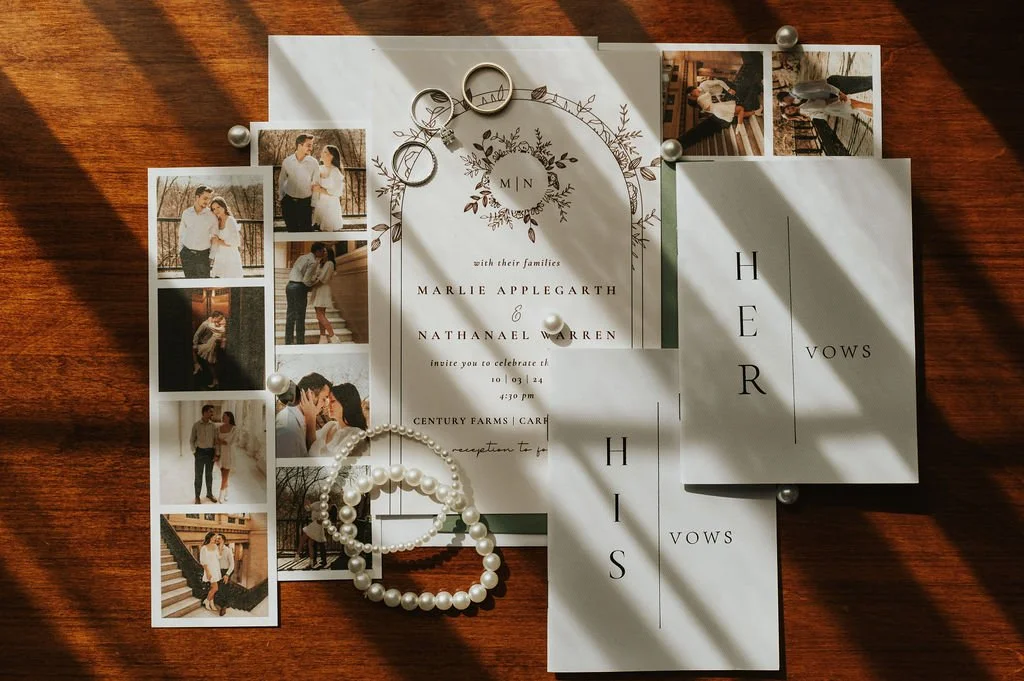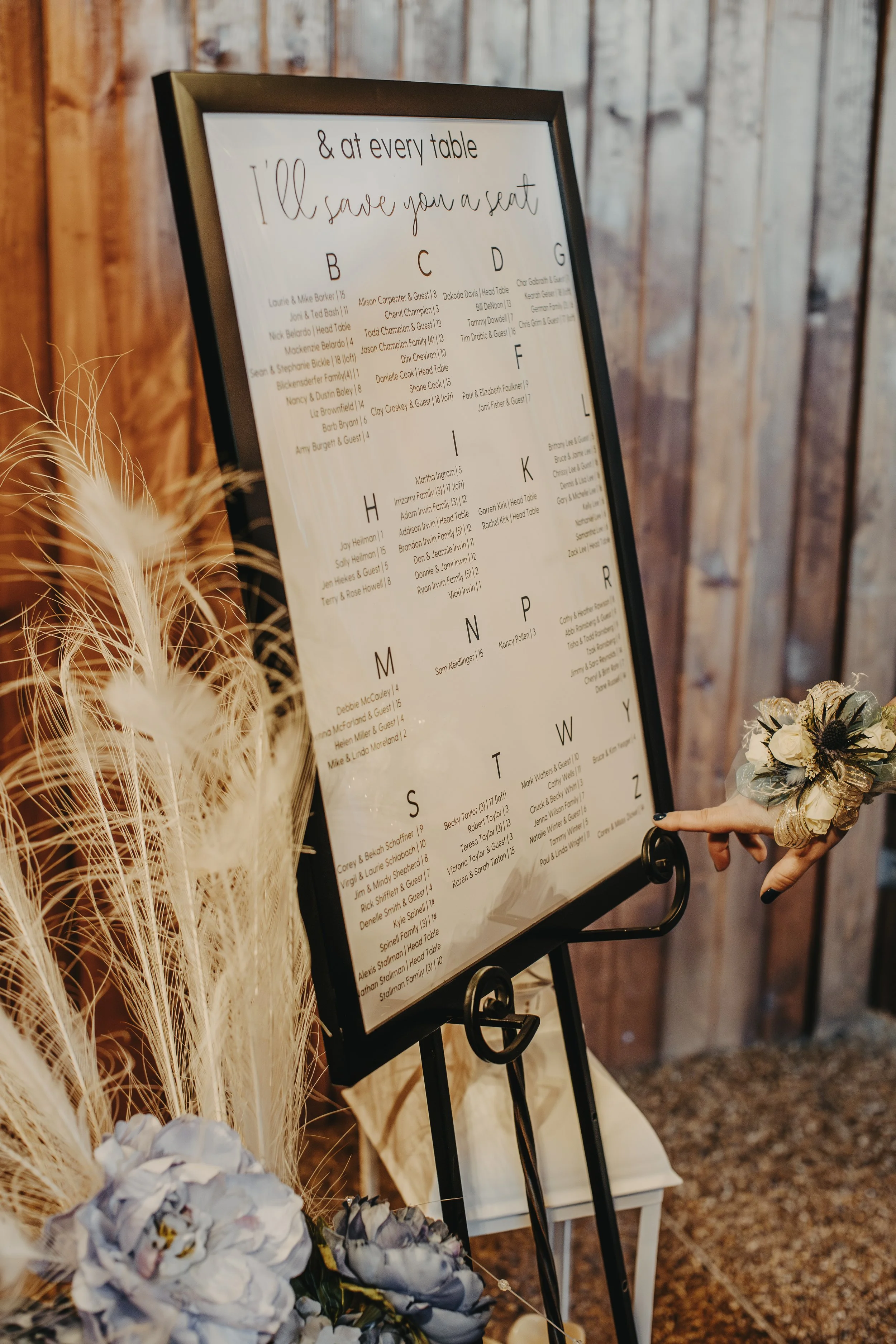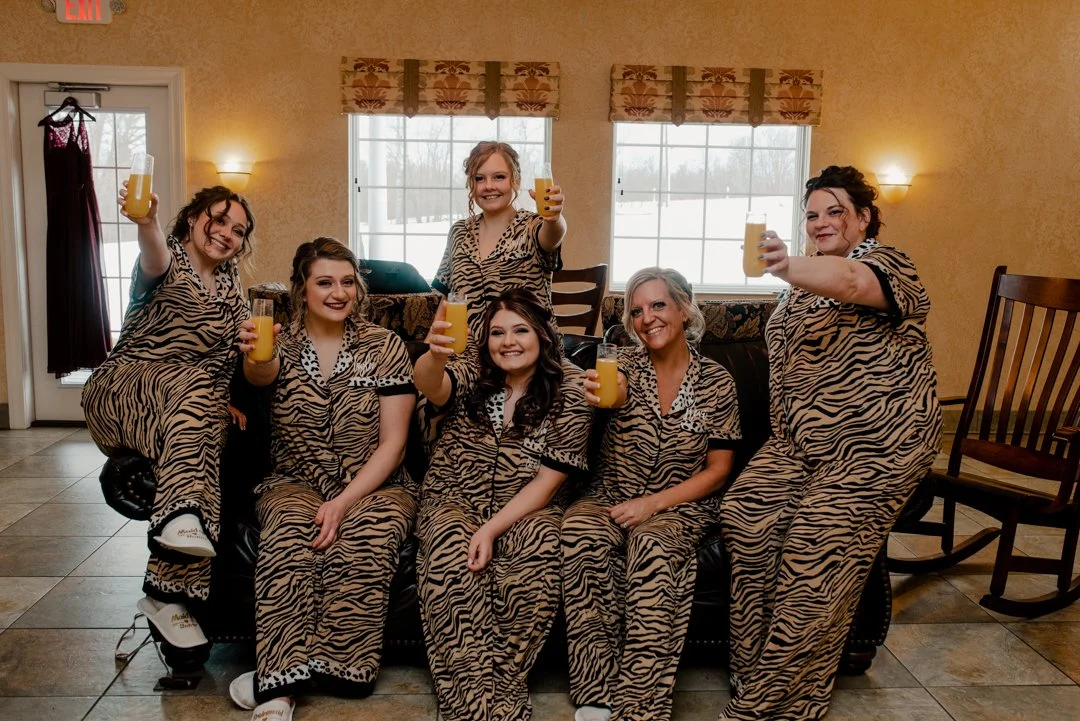What Is the Difference Between a Venue Coordinator and a Day-of Coordinator at Your Northeast OhioWedding? Let us count the ways for you…
Cori Wade Photography
Planning a wedding involves coordinating countless details, and the right support team can make all the difference. Two common roles in the wedding industry are the venue coordinator and the day-of coordinator, but these terms are often misunderstood. While their titles may sound similar, their responsibilities and focus differ significantly. Understanding these distinctions will help you decide what kind of support you need to make your wedding day seamless and stress-free.
As a locally owned wedding venue in Northeast Ohio, Century Farms and their ownership have hosted and worked over 400 weddings. The difference between day-of coordinator and venue coordinator has always been a hard one to put into words, and sometimes the roles do overlap, but here in this blog post we want to try and make that line a little clearer.
So, What Is a Venue Coordinator?
A venue coordinator, sometimes referred to as an event manager, is employed by the wedding venue to ensure their space is used effectively and efficiently. Their primary responsibility is to oversee the venue’s operations during your wedding.
Roles and Responsibilities:
Venue Logistics:
Ensure the venue is clean, set up, and ready for your event.
Coordinates with other venue staff, such as bartenders, kitchen staff, and security.
Rules and Regulations:
Enforces the venue’s policies, such as noise restrictions, alcohol service rules, and capacity limits.
Point of Contact for Vendors:
Communicate with your vendors about arrival times, setup requirements, and access to the venue.
Site Tours and Planning:
Provides site tours during the planning phase and assists with floor plans and layouts.
Crisis Management:
Handles issues related to the venue, such as power outages, temperature control, or facility maintenance.
What They Don’t Do:
Personal Details: Venue coordinators focus on their facility and do not manage personal aspects of your wedding, such as the timeline, guest seating arrangements, or family dynamics.
Full Wedding Oversight: They will not coordinate all your vendors or ensure your dress is bustled and your speeches are on time.
When You Need a Venue Coordinator:
If your venue requires you to work with their in-house staff and vendors.
If you’re comfortable managing personal and vendor details independently or with the help of a friend or family member.
If a venue coordinator is included with your venue rental, like at Century Farms, this is a huge plus and value add that you never knew you needed. We like to tell our clients that we work in the shadows. We are always there to help but you shouldn't notice the work we do while we do it, and our work should not interrupt your wedding day plans.
What Is a Day-of Coordinator?
A day-of coordinator, often referred to as a wedding coordinator, is hired by the couple to oversee all aspects of the wedding day. Unlike a venue coordinator, their focus is on the couple’s vision and the seamless execution of every detail.
Roles and Responsibilities:
Timeline Management:
Create and execute a detailed timeline for the day, ensuring everything runs on schedule.
Coordinates the timing of the ceremony, cocktail hour, and reception.
Vendor Coordination:
Communicates with all vendors to confirm arrival times, setup, and tear-down procedures.
Troubleshoots vendor issues and ensures everyone is on the same page.
Personal Assistance:
Ensures the couple’s needs are met, from bustling the dress to delivering touch-up kits.
Handles personal details like distributing final payments and gratuities to vendors.
Guest Management:
Addresses guest inquiries and directs them to the appropriate areas.
Resolves seating issues and manages family dynamics.
Ceremony and Reception Oversight:
Directs the wedding party during the processional and recessional.
Ensures the reception flows smoothly, from the grand entrance to the last dance.
What They Don’t Do:
Venue Maintenance: A day-of coordinator does not oversee the venue staff or handle issues like facility maintenance or cleanliness.
Full-Service Planning: They are not involved in the entire planning process unless explicitly hired for additional services.
When You Need a Day-of Coordinator:
If you want someone to manage the details so you can relax and enjoy your day.
If you have multiple vendors and a complex timeline that requires coordination.
If you need a liaison to handle last-minute emergencies and keep everything running smoothly.
Key Differences Between a Venue Coordinator and a Day-of Coordinator
Aspect
Focus
Employer
Vendor Coordination
Timeline Management
Crisis Management
Personal Assistance
Guest Management
Day-of Coordinator
Hired by the couple
Entire wedding day and personal details
Manages all vendors
Oversees the full wedding timeline
Addresses all wedding-related emergencies
Provides personal support for the couple
Ensures guests are cared for and informed
Venue Coordinator
Hired by the venue
Venue-related logistics
Limited to venue-related vendors
Limited to venue access and events
Handles venue-specific issues
None
Minimal
Century Farms Venue Coordinator
Century Farms
Venue-related logistics
Vendor setups inside the barn
Ceremony-end of night venue closure
+Where we can and feel confident in our individual skill sets
We are here for our clients and will jump in where and when we can if asked.
We help direct guests to general areas and keep guests out of where they should not yet be.
Can They Work Together?
Absolutely! A venue coordinator and a day-of coordinator can complement each other to ensure every aspect of your wedding is covered. The venue coordinator focuses on the facility while the day-of coordinator ensures your vision comes to life.
Example of Collaboration:
The venue coordinator confirms that tables and chairs are set up correctly, while the day-of coordinator ensures the centerpieces and place cards are arranged according to the couple’s specifications.
The venue coordinator manages the staff serving dinner, while the day-of coordinator ensures the wedding party is ready for speeches and toasts.
Budgeting for Coordination Services
Venue Coordinator Costs:
Typically included in the venue rental fee.
Additional fees may apply for extended hours or extra services.
Day-of Coordinator Costs:
Average Cost in 2025: $1,200–$3,000, depending on experience and location.
Factors Affecting Cost:
Size and complexity of the wedding.
Additional services like rehearsal coordination or setup assistance.
Tips to Maximize Value:
Clarify Expectations: Clearly define the responsibilities of each coordinator to avoid overlaps or gaps.
Communicate Early: Introduce the venue coordinator and day-of coordinator to each other well before the wedding day.
Prioritize Needs: If your venue offers a reliable coordinator, you may need less assistance from a day-of coordinator and vice versa.
Which Coordinator Is Right for You?
Choosing between a venue coordinator and a day-of coordinator depends on your wedding’s complexity and your personal needs. If your venue provides comprehensive support and you’re comfortable handling personal details, a venue coordinator may suffice. However, if you want someone fully dedicated to your vision and the guest experience, investing in a day-of coordinator is a wise choice.
A successful wedding relies on a team of professionals working together to bring your vision to life. By understanding the roles of a venue coordinator and a day-of coordinator, you can make informed decisions and ensure your wedding day is as stress-free as possible. Whether you choose one, or both, having the right support will allow you to focus on what truly matters: celebrating your love with family and friends for one epic glorious day.
Century Farms is a locally owned and operated business. We sincerely hope to encourage couples to learn more about the value and importance of choosing a locally owned business when it’s time to book your wedding venue & vendors. With locally owned venues you will often see a higher level of hospitality, better communication and a greater desire to truly ensure your wedding exceeds expectations. We are thrilled to support wedding venue owners from around the country with a weekly shout out in our blog. you can find locally owned wedding venues featured on this wedding venue map.


